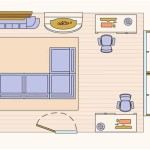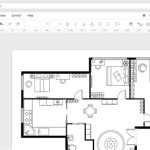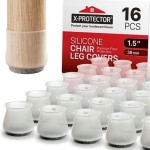Average Cost to Refinish Hardwood Floors: A Comprehensive Guide
Refinishing hardwood floors is a significant home improvement project that can dramatically enhance the aesthetic appeal and value of a property. Understanding the average cost associated with this process is crucial for homeowners planning such an undertaking. This article provides a detailed overview of the factors influencing the price of hardwood floor refinishing and offers a general cost estimate to help homeowners budget effectively.
The cost of refinishing hardwood floors is not a fixed figure. It varies considerably based on numerous considerations, including the square footage of the area being refinished, the type of wood, the condition of the existing floors, the chosen finish, and the geographic location of the property. Labor costs also play a significant role. Therefore, understanding each of these factors is paramount to accurately estimate the overall expense.
Key Factors Affecting Refinishing Costs
Several elements contribute to the overall cost of refinishing hardwood floors. These include the size of the project area, the type of wood, the condition of the floors, the chosen finish, and labor rates. Understanding each of these factors allows homeowners to anticipate potential expenses and make informed decisions regarding their flooring project.
Square Footage: The size of the area being refinished is a primary determinant of the overall cost. Refinishing prices are typically calculated on a per-square-foot basis. Larger areas will invariably incur higher costs due to the increased labor time and material requirements. For example, refinishing a 500-square-foot area will generally cost more than refinishing a 200-square-foot area, assuming all other factors remain constant.
Type of Wood: The type of wood flooring significantly impacts the cost of refinishing. Certain wood species, such as oak and maple, are relatively easy to refinish and are thus less expensive. Exotic or rare wood types, on the other hand, may require specialized techniques and materials, resulting in higher refinishing costs. Furthermore, the hardness of the wood can affect the sanding process, potentially increasing labor time and associated expenses.
Condition of the Floors: The existing condition of the hardwood floors plays a crucial role in determining the total refinishing cost. Floors with extensive damage, such as deep scratches, gouges, or water damage, require more preparation work before the actual refinishing process can begin. This may involve patching, repairing, or even replacing damaged boards, all of which contribute to increased costs. Floors that are relatively well-maintained and require minimal repair will naturally be less expensive to refinish.
Type of Finish: The choice of finish significantly influences the overall cost of the project. Different types of finishes vary in price, durability, and application requirements. Polyurethane finishes are a common and relatively affordable option, offering good durability and protection against wear and tear. Water-based finishes are another popular choice, known for their low VOC content and quick drying time, although they may be slightly more expensive than polyurethane. High-end finishes, such as penetrating oil finishes, can provide a luxurious look and feel but often come with a higher price tag.
Labor Costs: Labor costs constitute a significant portion of the total refinishing expense. These costs vary depending on the geographic location, the experience and expertise of the contractor, and the complexity of the project. Contractors in metropolitan areas typically charge higher rates than those in rural areas. It is essential to obtain multiple quotes from reputable contractors to ensure competitive pricing and to assess their experience and qualifications.
Beyond these core elements, there are other factors that could contribute to the total refinishing expenses. These include the removal of existing flooring, the disposal of waste materials, and the cost of moving furniture. It is crucial to discuss these potential additional costs with the contractor during the initial consultation phase.
Average Cost Breakdown: A Detailed Estimate
Establishing a precise average cost for refinishing hardwood floors is challenging due to the variability of the factors mentioned previously. However, a general estimate can provide homeowners with a reasonable expectation of the potential expense. The cost will vary significantly depending on the region and the contractor hired.
On average, homeowners can expect to pay between $3 to $8 per square foot to professionally refinish hardwood floors. This range encompasses the cost of sanding, staining (if desired), and applying several coats of finish. For a 500-square-foot area, the total cost could range from $1,500 to $4,000. This estimate is intended to give a general idea of the cost. It is always advisable to get estimates from several local flooring contractors as prices can vary.
The lower end of the price range typically applies to simpler projects involving standard wood types, minimal repairs, and basic finishes. The higher end of the range is more likely to be associated with more complex projects involving rare or exotic wood types, extensive repairs, custom staining, and premium finishes.
Some contractors may offer all-inclusive packages that cover all aspects of the refinishing process, from preparation to cleanup. Others may provide itemized quotes that break down the cost of each individual service. It is important to carefully review the details of each quote to ensure that all necessary services are included and to compare the pricing of different contractors.
Beyond the base price, homeowners should also factor in potential additional costs, such as the cost of moving furniture, removing and disposing of old flooring, and addressing unexpected issues that may arise during the refinishing process, such as hidden damage or asbestos abatement.
Cost-Saving Strategies for Hardwood Floor Refinishing
Refinishing hardwood floors can be a significant investment, but there are several strategies homeowners can employ to potentially reduce the overall cost without compromising the quality of the work. These strategies involve careful planning, selective material choices, and strategic project management.
Obtain Multiple Quotes: One of the most effective ways to save money on hardwood floor refinishing is to obtain quotes from multiple contractors. Comparing quotes allows homeowners to identify the most competitive pricing and to assess the expertise and qualifications of different contractors. It is also advisable to ask each contractor for a detailed breakdown of their pricing to understand exactly what is included in the quote.
Consider DIY Options (with Caution): Homeowners with experience in home improvement projects may consider undertaking the refinishing process themselves. While DIY refinishing can save money on labor costs, it is essential to carefully assess the risks and challenges involved. Refinishing hardwood floors requires specialized equipment and techniques, and mistakes can be costly to correct. If considering DIY refinishing, it is crucial to thoroughly research the process, rent or purchase the necessary equipment, and practice on a small, inconspicuous area before tackling the entire project.
Choose Affordable Finishes: The choice of finish can significantly impact the overall cost of the project. Opting for more affordable finishes, such as polyurethane, can help reduce expenses without sacrificing durability and aesthetics. Water-based finishes offer a decent balance of cost and being environmentally friendly. It's important to balance budget constraints with the desired aesthetic and durability requirements.
Minimize Repairs: Addressing minor scratches and dents before hiring a contractor can potentially reduce the amount of preparation work required, thereby lowering labor costs. Filling small imperfections with wood filler and sanding them smooth can prevent the contractor from having to spend excessive time on these tasks. However, it is important to avoid attempting more complex repairs, as this could potentially worsen the damage and increase the overall cost of the project.
Time the Project Strategically: The demand for flooring contractors can fluctuate depending on the season. Scheduling the project during off-peak times, such as late fall or early winter, may result in lower labor rates. Contractors are often more willing to offer discounts during periods of lower demand.
It is important to understand that excessively cutting costs may compromise the quality of the work. Choosing a less experienced or unqualified contractor, using inferior materials, or skimping on preparation can lead to unsatisfactory results and potentially require costly repairs in the future. Therefore, it is crucial to strike a balance between cost savings and quality to ensure a successful and durable refinishing project.
Furthermore, understand that different regions will have different price points due to labor costs and the cost of materials. Be sure to get estimates from local contractors to get the most accurate picture of the cost in your area.

What Is The Cost To Refinish Hardwood Floors In Georgia

Cost To Refinish Hardwood Floors Sandless In Seattle

How Much Does It Cost To Refinish Hardwood Floors In 2025

How Much Does Hardwood Floor Refinishing Cost 2025 Data

Cost To Refinish Hardwood Flooring

How Much Does It Cost To Refinish Hardwood Floors In 2025

What Is The Cost To Refinish Hardwood Floors In Georgia
:max_bytes(150000):strip_icc():format(webp)/cost-to-refinish-hardwood-floors-1314853-FINAL-5bb6259346e0fb0026825ce2.png?strip=all)
Understanding The Cost To Refinish Hardwood Floors

Hardwood Floor Refinishing Cost Prices 2024

How Much Does It Cost To Refinish Hardwood Floors 2025







